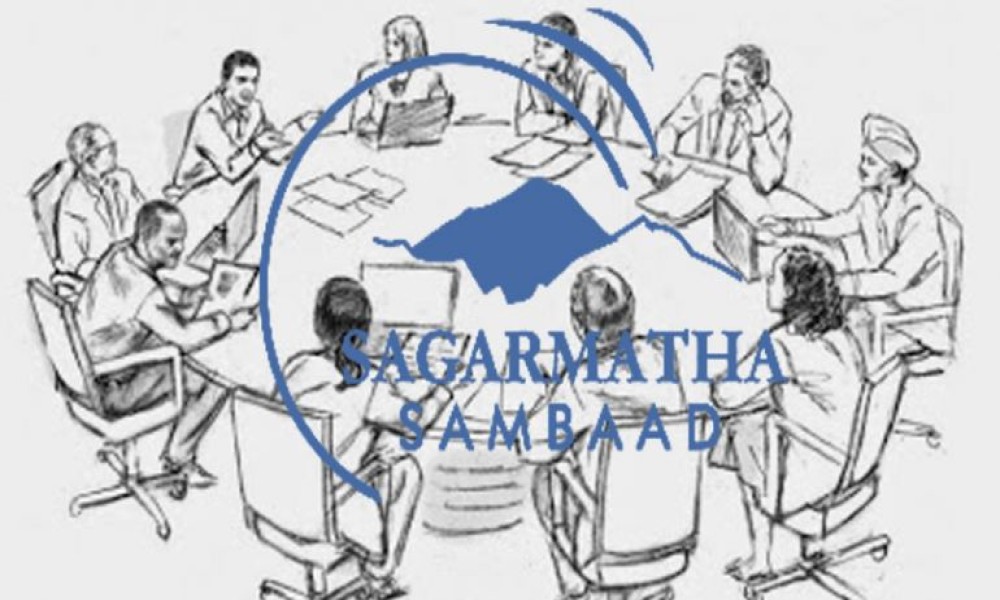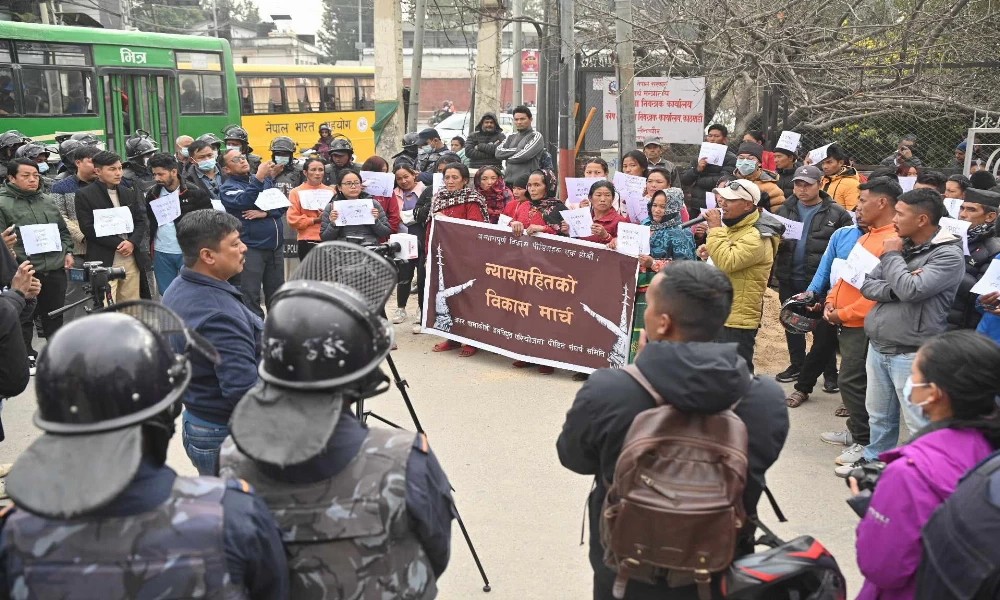SUJAN SUNUWAR
Nepal is initiating a global dialogue on some of the most pressing issues that are plaguing not just the Himalayan nation, but the entire world. Aptly named as Sagarmatha Sambad, this initiative is an attempt to shed light on Nepal's home-grown peace process, community resilience and efforts to slow down the Himalayan meltdown.
In order to finalize the agendas of Sagarmatha Sambad, consultation meetings have been organized recently in Pokhara and Janakpur, where most participants advised the government to focus on national, regional and global collaboration to effectively tackle climate change -- a threat to people, including indigenous communities whose livelihood is intrinsically linked with land, water and other natural resources.
climate change has already begun to show visible impacts on local people's lives and livelihood. In Mustang, an entire village has been displaced due to drought. Plants that were once found only in the plains are now growing on the foothills of mountains. Apple production is down.
The first edition of Sagarmatha Sambad is being held in Kathmandu from 2 to 4 April 2020 with the theme of 'climate change, mountains and the future of the humanity'.
Speaking at the Pokhara consultation meeting for Sagarmatha Sambada, Gandaki province's Chief Minister Prithvi Subba Gurung said that climate change has already begun to show visible impacts on local people's lives and livelihood. He said: "In Mustang, an entire village has been displaced due to drought. Plants that were once found only in the plains are now growing on the foothills of mountains. Apple production is down. These are all impact people's lives. Sagarmatha Sambad must draw the world's attention to these adverse impacts of climate change".
Dr Anup Lama of International Center for Integrated Mountain Development (ICIMOD) said that Sagarmatha Sambad could be a forum to show how climate change is impacting culture, tradition and lifestyle of mountain communities. Dr Lama said: "Climate and culture are intertwined with each other. And it is is also linked with our livelihood. So, it should be reflected in our climate policies".
Sagarmatha Sambad could be a forum to show how climate change is impacting culture, tradition and lifestyle of mountain communities. Climate and culture are intertwined with each other. And it is is also linked with our livelihood. So, it should be reflected in our climate policies.
Laxmi Gurung, a tourism entrepreneur from Mustang, spoke about how the rain-shadow district is now bearing the brunt of climate change. She said: "In 2018, we witnessed a huge flood in Kali Gandaki river -- something not seen by local people as old as 90".
Min Bahadur Soti of Nawalparasi district said farmers in the country's plains region are now suffering from more frequent incidents of hailstorm than ever before. He said: "Water sources are fast drying up in the Chure region. People are forced to opt for deep boring to get water".
Sharmila Gurung, Deputy Chief of Gharapjhong rural municipality in Mustang stressed the need for awareness about climate change at the local level, if we were to tackle this global crisis more effectively.
-Indigenous Feature Service









